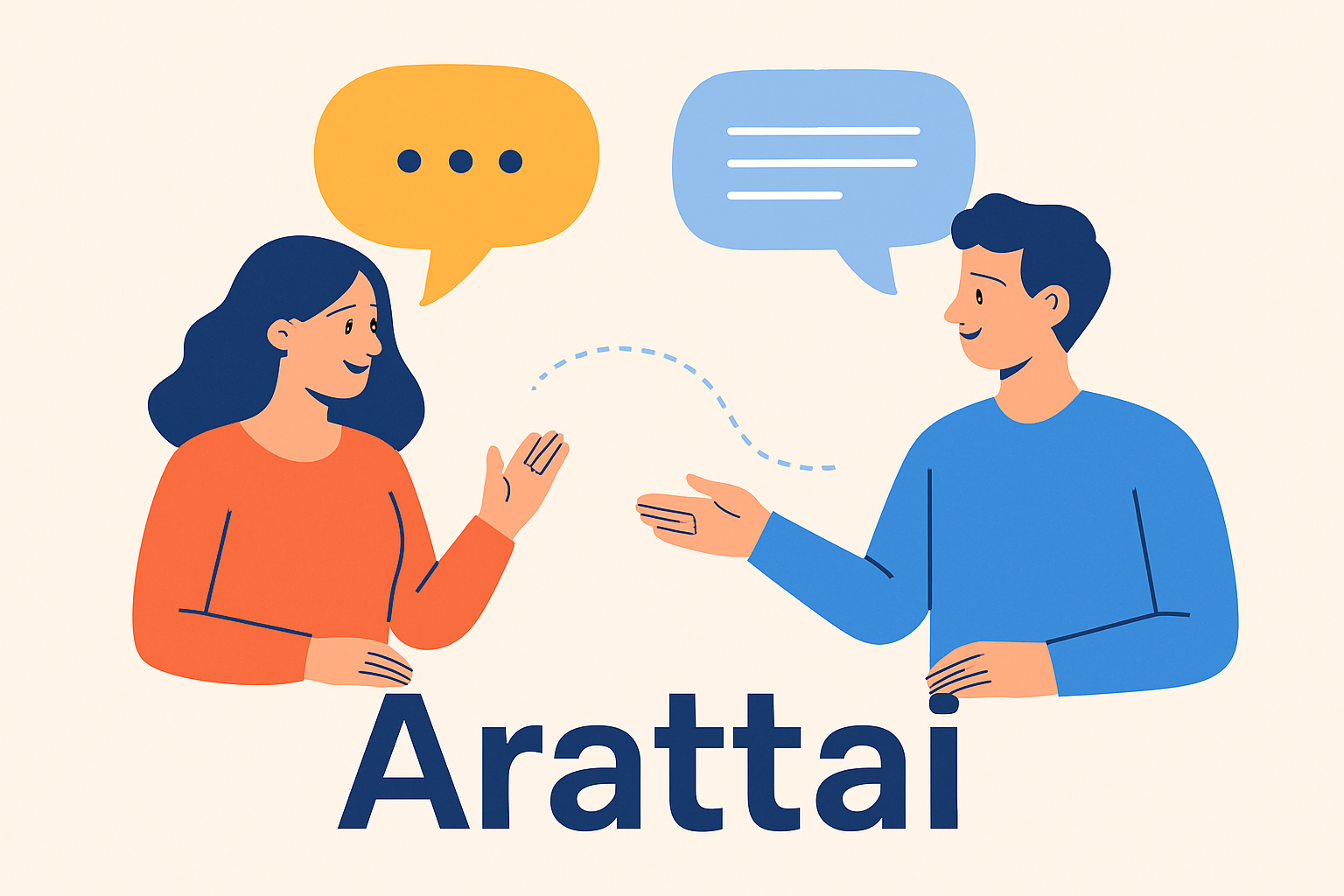The Indian made Arattai is gaining popularity, fast replacing the US messenger app’s dominance. WhatsApp’s 540 million Indian users constitute 200 million more than the total population of the US. The Indian market is key to the US app’s huge valuation. Zoho is the only one in the world to compete with Microsoft.
Arattai Messenger, anapplication developed by the home-grown Zoho Corporation – originally known as AdventNet – is gaining popularity at a rapid pace. In technical terms, Arattai, meaning ‘chat’ in Tamil, is a home-grown freeware instant cross-messaging platform equipped with Voice over IP (VoIP). Originally launched in January 2021, the app was first tested among Zoho employees before making it available to the public.
With the government actively promoting Swadeshi as part of the Atmanirbhar mission, Zoho Corporation gained significant attention from both the government and the public. Following the US’s punitive trade measures against India, the Indian public began considering the adoption of domestically made products and services. Since mid-2010, when WhatsApp launched in India, the messenger app has grown significantly, reaching approximately 540 million users, which is 200 million more than the entire population of its home country, the United States. Driven by the customer base in India, WhatsApp’s valuation soared to the virtual stratosphere. Facebook acquired it in February 2014 for $19 billion from its founders, Jan Koum and Brian Acton, in what was termed the largest deal of combined cash and stock by Facebook, which was renamed Meta in October 2021. Since September 2025, Arattai has experienced rapid daily download growth. This unprecedented surge pushed the platform to a brief stress point, prompting Zoho to quickly scale server capacity and expand its infrastructure.
WhatsApp’s monopoly position gave it dictating power, which the hapless users had to accept. Last year, the Competition Commission of India imposed a penalty of Rs 213.14 crore on Meta for abusing its dominant position by which it collected user data and shared it with other Meta companies. The Commission issued cease-and-desist directions while ordering Meta and WhatsApp to implement certain behavioural remedies within a defined timeline. The Commission delineated the market for OTT messaging apps through smartphones and the market for online display advertising in India. WhatsApp has been a dominant player in the Indian market for OTT messaging apps. Furthermore, it was also found that Meta holds a leading position compared to its competitors in the online display advertising in India.
In January 2021, WhatsApp notified users about changes to its terms of service and privacy policies. The company stated that, effective February 8, 2021, users must accept these new terms, which include an expanded scope of data collection and mandatory data sharing with Meta companies, to continue using WhatsApp. Under the previous privacy policy dated August 25, 2016, WhatsApp users were given the option to decide whether they wanted to share their data with Facebook. In 2021, WhatsApp updated its policy to make data sharing with Meta mandatory for all users, eliminating the previous option to opt out. Thus, users were compelled to accept the new terms, which included data sharing with Meta.
Though Arattai has some more miles to travel to make it better than WhatsApp, Zoho can position Arattai with better features, suitable for Indian users’ convenience and safety. Already, its business features are said to be straightforward with a focus on channels and content-sharing, making it more suitable for small users. In another feature, it is comparable to Microsoft Teams for scheduling meetings. In a year, WhatsApp may see a steep erosion of traffic and user time and over a period, Indians will send WhatsApp back to its home if the US continues its hostile trade approach.
Now Zoho Corporation, headquartered in Chennai, is a fully- Indian company founded by Sridhar Vembu with Tony Thomas. While the Vembu siblings own 92 per cent stake in the company, the co-founder owns eight per cent. Zoho, which offers a broader and superior suite of products, could be a potential Indian challenger to Google and Microsoft.

